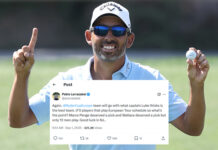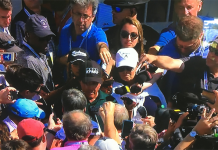
A storm is brewing in professional golf, and the U.S. Department of Justice (DOJ) is poised to take aim at the PGA Tour and the Official World Golf Ranking (OWGR) for alleged antitrust violations that have stifled LIV Golf, the Saudi-backed disruptor shaking up the sport.
In a series of exclusive interviews, two anonymous former DOJ prosecutors (let’s call them Jane Doe and John Smith), who played key roles in landmark antitrust cases against Google and Microsoft, revealed that the DOJ is seriously considering a formal investigation into claims of collusion and monopolistic practices.
These claims, amplified by Pro Golf Weekly’s recent articles and a suspiciously timed OWGR statement, center on the PGA Tour and OWGR’s alleged efforts to deny LIV Golf players world ranking points, effectively sidelining them from major tournaments while deflecting blame with a dismissive brush off: “They chose LIV.”
The prosecutors, speaking on condition of anonymity due to the sensitivity of ongoing discussions, outlined ten (10) potential violations of the Sherman Antitrust Act, drawing parallels to their tech industry battles. Here’s how golf’s power brokers may have crossed the legal line, threatening the sport’s competitive future.
Doe, a veteran of the Google search monopoly case, and her colleague, Smith, who worked on the Microsoft antitrust saga, see eerie similarities between Big Tech’s gatekeeping and golf’s power play.
“The PGA Tour and OWGR are acting like Microsoft in the ‘90s, using their dominance to choke a rival,” Smith said. “This isn’t a fair fight, it’s a rigged game.”

Below, the two legal brawlers break down ten (10) ways the PGA Tour and OWGR may have violated antitrust laws, each with a vivid analogy to bring the legal stakes to life.
1. Orchestrating a Group Boycott to Ice Out LIV Golf
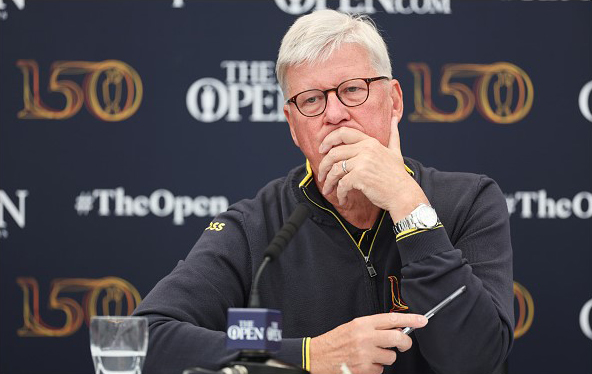
The PGA Tour and OWGR board, packed with Tour allies like the R&A and the USGA, allegedly conspired to deny LIV Golf events OWGR points, locking players out of majors. “They’re rigging the game,” an unnamed legal executive growled. This could be a “group boycott,” a per se violation of Sherman Act Section 1, where competitors collude to exclude a rival. For instance, see ‘R&A Chief Stumbles Badly When Questioned About Collusion Against LIV Golf.’
- Legal Speak: Section 1 violation through a concerted agreement to exclude a competitor, constituting a per se illegal group boycott.
- Analogy: It’s like a cabal of art dealers excluding modern painters’ canvases, claiming their “style” doesn’t belong in their elite galleries.
- Prosecutor Insight: “This is straight out of Google’s playbook,” Doe said, referencing the DOJ’s 2024 case against Google’s search monopoly. “Google locked rivals out of default search deals. Here, the OWGR board’s coordinated denial of points mirrors that exclusionary pact.”
2. Abusing Monopoly Power to Crush Competition

The PGA Tour, with its $700 million media empire, allegedly used suspensions (e.g., Phil Mickelson) and OWGR influence to squash LIV, violating Section 2. “They dictate who can play where,” a legal source sneered. The PGA Tour even suspended a Content Creator for appearing at a LIV Golf event.
- Legal Speak: Section 2 violation through willful maintenance of monopoly power via exclusionary conduct in the elite professional golf market.
- Analogy: It’s like a casino owner banning poker players who dare play at a rival’s neon-lit tables, ensuring his glittering empire remains the only bet in Vegas.
- Prosecutor Insight: “Microsoft’s browser wars showed us how monopolists bully rivals,” Smith said, citing the 1998 case (United States v. Microsoft). “The PGA Tour’s suspensions are like Microsoft forcing PC makers to shun Netscape. It’s pure market control.”
3. Hiding Behind Bogus Standards to Throttle LIV

The OWGR’s rejection of LIV’s 2022 and 2023 bids, citing its 54-hole format and “closed shop,” are “such flimsy excuses,” per a legal source. This could violate Section 1’s rule of reason by unfairly restraining trade.
- Legal Speak: Section 1 violation under the rule of reason, with pretextual criteria unreasonably restraining trade in professional golf.
- Analogy: It’s like a music festival banning a new band for using “freaky” synthesizers, a blatant ruse to throttle the upstart band and keep the headliner’s ticket sales blazing.
- Prosecutor Insight: “Google used ‘quality’ excuses to bury rival search engines,” Doe noted. “The OWGR’s format objections look like a pretext to protect the PGA Tour, not a legitimate standard.”
4. Cooking the Rankings to Prop Up PGA Tour Stars

Pro Golf Weekly exposed the OWGR inflating Justin Thomas’ No. 4 ranking while LIV stars like Rahm and DeChambeau tank. Thomas, himself, brushed off the collusion controversy by blaming the LIV Golf players. “In my opinion, that’s their own fault,” said one of golf’s most overrated players in history. This bias, including Thomas’ big mouth, tied to PGA Tour sway, could violate Sections 1 and 2.
- Legal Speak: Sections 1 and 2 violations through collusive manipulation of ranking criteria to favor one competitor, distorting market competition.
- Analogy: It’s like a shady film academy juicing up scores for big studio directors, while indie filmmakers’ masterpieces are not awarded scores, keeping Hollywood’s darlings in the Oscar glow.
- Prosecutor Insight: “Microsoft rigged Windows to favor Internet Explorer,” Smith said. “The OWGR’s skewed points system is golf’s version, tilting the field for PGA Tour players.”
5. Colluding with Majors to Exile LIV Players
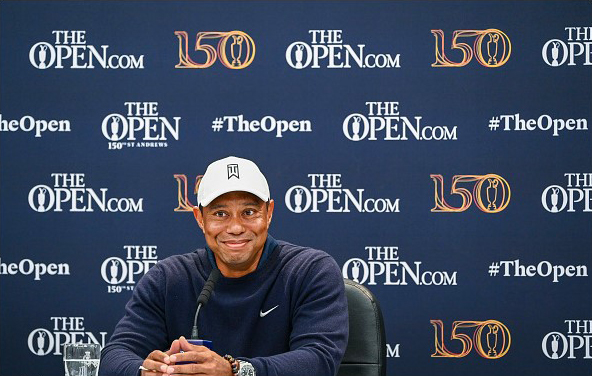
The OWGR board, with major tournament reps, allegedly plotted with the PGA Tour to bar LIV players from majors. “It’s a cartel,” the legal source snarled. This could be a Section 1 conspiracy. Even Tiger Woods, seemed to let it slip that the plan relative to majors was to exile LIV Golf players and shut them out of majors. Woods said, “Some of these players may not ever get a chance to play in major championships. That is a possibility. We don’t know that for sure yet. It’s up to all the major championship bodies to make that determination. But that is a possibility, that some players will never, ever get a chance to play in a major championship.”
- Legal Speak: Section 1 violation via a conspiracy among competitors to exclude a rival from critical market segments (major tournaments).
- Analogy: It’s like elite fashion houses plotting to ban a daring designer’s gowns from Paris Fashion Week, ensuring their velvet-rope clique rules the catwalk.
- Prosecutor Insight: “Google’s exclusive deals with Apple blocked rivals from search markets,” Doe said. “The OWGR’s major allies locking out LIV players is a similar gatekeeping conspiracy.”
6. Bullying Players to Block LIV Defections

The PGA Tour’s suspensions and Jay Monahan’s “consequences” threats scream coercion, per the LIV executive’s “strangling competition.” This could violate Section 2. In fact, Rory McIlroy admitted to such when he campaigned to stop young Northern Irishman Tom McKibbon from jumping to LIV. (Rory McIlroy Campaigns to Stop Tom McKibbin’s Jump to LIV Golf.) “I think what he potentially is sacrificing and giving up, with access to majors, potential Ryder Cup spot, depending on, you know, how he would play … if I were in his position and I had his potential, which I think I have been before, I wouldn’t make that decision.”
- Legal Speak: Section 2 violation through coercive exclusionary conduct designed to deter market entry by a competitor.
- Analogy: It’s like a record mogul threatening to torch the careers of singers who dare cut tracks with a rival indie label, silencing their rise to the charts.
- Prosecutor Insight: “Microsoft pressured PC makers to ditch competitors,” Smith said. “The PGA Tour’s threats to players mirror that strong-arm tactic to kill off LIV.”
7. Smothering Golf’s Bold New Spark
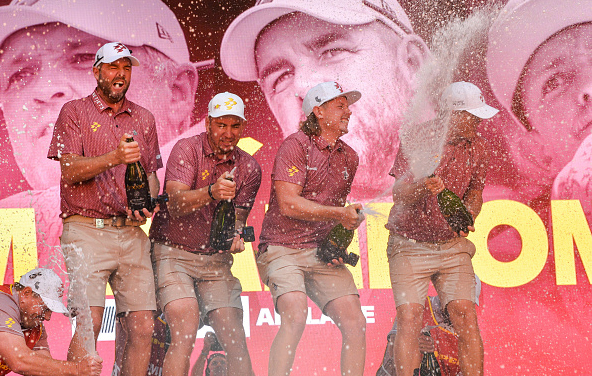
LIV’s team-based format brings fresh energy, and the OWGR claimed the team format was one of the reasons for exclusion despite it having nothing to do with how a player performs individually. The attorney called it a “textbook antitrust violation,” potentially breaching Section 1’s rule of reason.
- Legal Speak: Section 1 violation under the rule of reason for suppressing innovative formats, harming consumer welfare and market dynamism.
- Analogy: It’s like an auto company refusing to build electric cars, claiming they’re “untested,” to keep their clunky gas-guzzlers ruling the roads.
- Prosecutor Insight: “Google stifled innovative search algorithms,” Doe said. “The OWGR’s refusal to embrace LIV’s format is a classic move to squash market evolution.”
8. Building a Fortress to Bar LIV’s Entry

Denying LIV points creates an impenetrable barrier, crippling its ability to attract talent. “They’re not letting us coexist,” the LIV executive claimed. This could violate Sections 1 and 2. The “fortress” extends to the media coverage too. For instance, you will rarely see the Golf Channel talk about LIV Golf players or events on its flagship shows. And, during weekend golf on CBS, they will list the upcoming schedule on the various tours, and completely blackout any mention of LIV Golf. It’s like they do not exist. The fortress is built around the golf establishment and LIV Golf is not welcome.
- Legal Speak: Sections 1 and 2 violations through coordinated and unilateral actions creating insurmountable barriers to market entry.
- Analogy: It’s like a mafia-run street market refusing to inspect and permit a new food truck, then saying its food “is not up to code,” to keep their greasy empire unchallenged.
- Prosecutor Insight: “Microsoft built walls to block software rivals,” Smith said. “The OWGR’s points denial is golf’s fortress, designed to keep LIV out of the market.”
9. Spinning Deception to Mask Collusion

The OWGR’s July 11, 2025, statement on LIV’s June 30 bid came suspiciously after Pro Golf Weekly’s DOJ probe tease. “They’re playing nice to dodge the cartel label,” a legal source jeered. This could strengthen a Section 1 case.
- Legal Speak: Section 1 violation through deceptive conduct masking a conspiracy to restrain trade, evidencing collusive intent.
- Analogy: It’s like a corrupt boxing promoter hyping a “fair” title shot for an underdog after scandal leaks, while secretly rigging the ring for the champ.
- Prosecutor Insight: “Google’s public ‘openness’ claims hid exclusive deals,” Doe said. “The OWGR’s sudden statement reeks of a PR stunt to deflect DOJ scrutiny.”
10. Rigging the Game for a Market Lock-Up

The 2023 PGA Tour-LIV-PIF merger, still unresolved, may consolidate golf’s market. Pre-merger OWGR denials could be a Section 1 conspiracy or Section 7 (Clayton Act) violation.
- Legal Speak: Sections 1 and 7 violations through pre-merger exclusionary conduct and a merger substantially lessening competition.
- Analogy: It’s like a coffee baron poisoning a rival’s beans before a buyout, ensuring a cheap takeover to rule the caffeine kingdom.
- Prosecutor Insight: “Google’s Character.AI deal raised DOJ flags for market control,” Smith said. “The PGA Tour’s pre-merger tactics look like a setup to dominate golf.”
The Legal Stakes and Remedies

The ex-prosecutors see “almost a bullet proof case,” drawing on their tech antitrust experience, although they warn that “anything can happen” in a federal courtroom. “The evidence here (communications, ranking data, player harm) seems to mirror the smoking guns we found against Google and Microsoft,” Doe said. If the DOJ finds violations, remedies could include:
- Retroactive OWGR Points: LIV’s demand to recalculate 2022–2025 rankings, restoring realistic rankings for elite players like Rahm and Joaquin Niemann while restoring access to majors for former top-30 to top-50 ranked players like Patrick Reed, Louis Oosthuizen, Abraham Ancer and Marc Leishman, among others.
- Injunctions: Forcing future LIV points and player reinstatements, per United States v. E.I. du Pont (1956).
- Structural Reforms: Demanding a total recalibration of the OWGR board to bring forth more independence.
- Damages: Enabling Clayton Act lawsuits for lost earnings for players who missed out on majors over a four-year span.
Smith warned, “Like Microsoft, the PGA Tour could face years of litigation if they dig in.” The OWGR’s “minimal points” risk, per insiders, could further inflame the DOJ if seen as tokenism.
Political and Media Firepower

The investigation carries political weight, with former President Trump often quizzing the DOJ about an investigation, with a White House aide calling a “personal crusade” for “fairness.” His affinity for Fox Sports’ LIV deal and disdain for the “fake news” of CBS and NBC, who broadcast the PGA Tour, only amplify the stakes.
“Trump’s framing this as an establishment takedown,” Doe said, noting risks of perceived bias. Rupert Murdoch’s Fox Sports and Fox News, per the aide, could spotlight collusion claims, much like the media shaped public views in the Google case.
“Fox’s platform gives LIV a megaphone,” Smith added, “like tech blogs did for Microsoft’s rivals.”
The Road Ahead
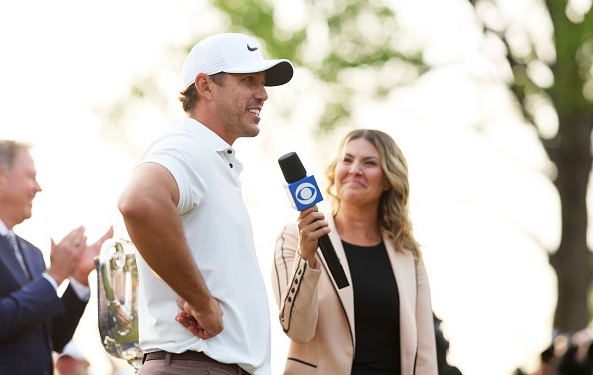
The DOJ’s probe, if launched, could reshape golf. “This isn’t just about points, it’s about breaking a cartel,” Doe said, echoing the LIV executive’s “coexistence” plea. Fans lose when stars are sidelined, and competition suffers when innovation is crushed.
As the British Open looms, where the OWGR board meets, all eyes are on whether golf’s gatekeepers will loosen their grip or face the DOJ’s wrath.
“The PGA Tour and OWGR thought they could play God,” Smith said. “But in antitrust cases, even giants fall.”



